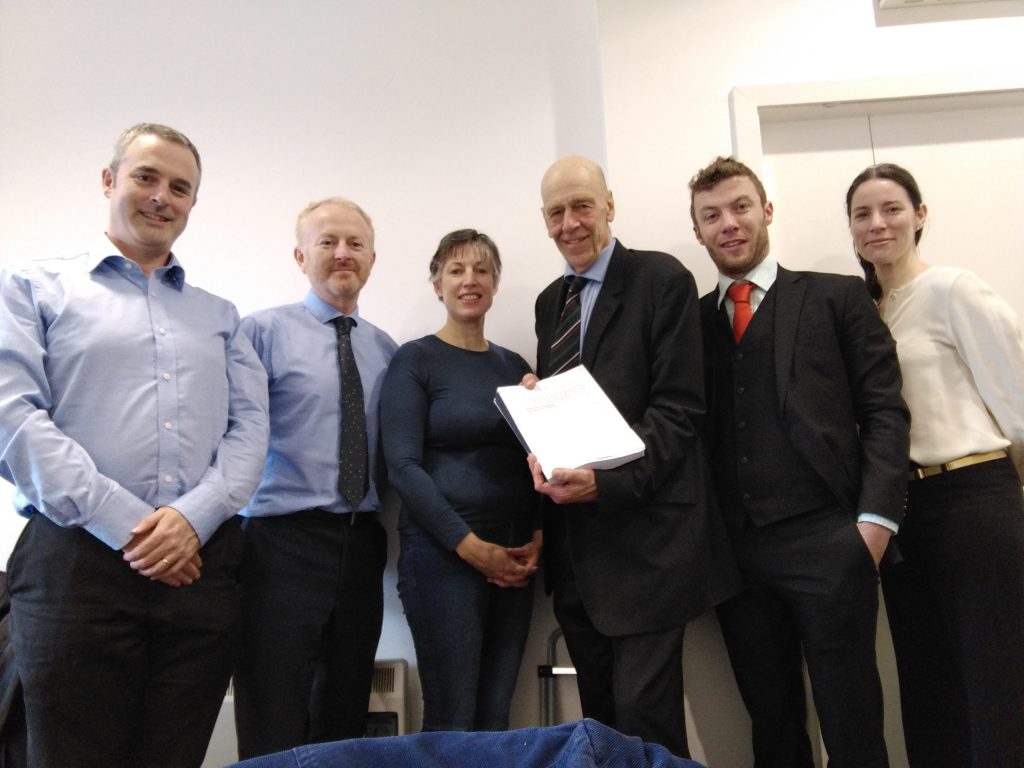All eyes on climate court case in Ireland, says international legal expert

November 8th, 2017
Governments across the world are now being held legally accountable for climate inaction, and all eyes will now be on what unfolds in Ireland, according to a leading international environmental lawyer.
Speaking at the Litigation for the Climate talk in UCD this week, Dutch lawyer Dennis Van Berkel emphasized the importance of a global commitment to bolstering climate litigation.
Mr van Berkel was the legal counsel to the Urgenda Foundation in their landmark 2015 climate case, together with 900 Dutch citizens, against the Dutch Government for taking “insufficient action to keep them safe from dangerous climate change”.
The District Court of The Hague ruled in June 2015 that the Dutch government is required to reduce its emissions by at least 25 per cent by the end of 2020 compared to 1990 levels, although the Dutch government has since appealed the verdict.
Mr Van Berkel detailed the legal argumentations behind his group’s 2015 landmark victory, stating that the group argued that the state was not following its duty under the UNFCCC, constituting a volition of Dutch citizen’s human rights.
State’s individual responsibility
Countries signed up to the United Nations Framework Convention on Climate Change’s (UNFCCC) treaty are obliged to strive for the stabilisation of greenhouse gas concentrations to a level that would prevent dangerous human interference with the climate system.
Mr Van Berkel added: “The Dutch State argued that we are emitting very little compared to the rest of Europe, but the court said that the emission of all states contributes to the larger issue and it means that you also have an individual responsibility for your own emissions.”
He said that judges around the world are now looking at this case and repeating the same message that climate change is “potentially infringing on the rights of citizens”.
“Climate litigation is in its early stages, but science tells us that we need to drastically step up,” he concluded, expressing his satisfaction that Urgenda has inspired others around the world, such as Friends of the Irish Environment (FIE).

Friends of the Irish Environment with solicitor Fred Logue (left) Photo: FIE
Constitutional right to environmental protection
FIE obtained permission from the High Court in October to bring a lawsuit against the Irish Government, claiming that it has failed to take action to avert the threat of climate change.
The legal challenge claims that the National Mitigation Plan does not do enough to reduce our emissions, violating Ireland’s Climate Act, the Irish Constitution, and human rights obligations.
In late November, the Irish High Court also recognised for the first time the constitutional right of Irish people to an environment that is consistent with the human dignity and well-being of citizens.
The judgement was made in relation to another legal challenge brought by FIE, this time against a decision to grant the Dublin Airport Authority a five-year extension to a 2007 planning permission for the construction of a third runway at Dublin Airport.
While dismissing FiE’s challenge in this case, Mr Justice Barrett recognised for the first time a constitutional right to environmental protection “that is consistent with the human dignity and well-being of citizens at large”.
“It is an indispensable existential right that is enjoyed universally, yet which is vested personally as a right that presents and can be seen always to have presented, and to enjoy protection, under Art. 40.3.1 of the Constitution. It is not so utopian a right that it can never be enforced,” the judgement continues.
Dr Andrew Jackson of UCD’s Sutherland School of Law said that FIE’s recent victory was a long-awaited achievement.
“The big legal significance of the case was that the judgment established something that environmental advocates have been trying to achieve for years and years in Ireland: to read-in environmental protection into the Irish constitution,” Dr Jackson said.
[x_author title=”About the Author”]







